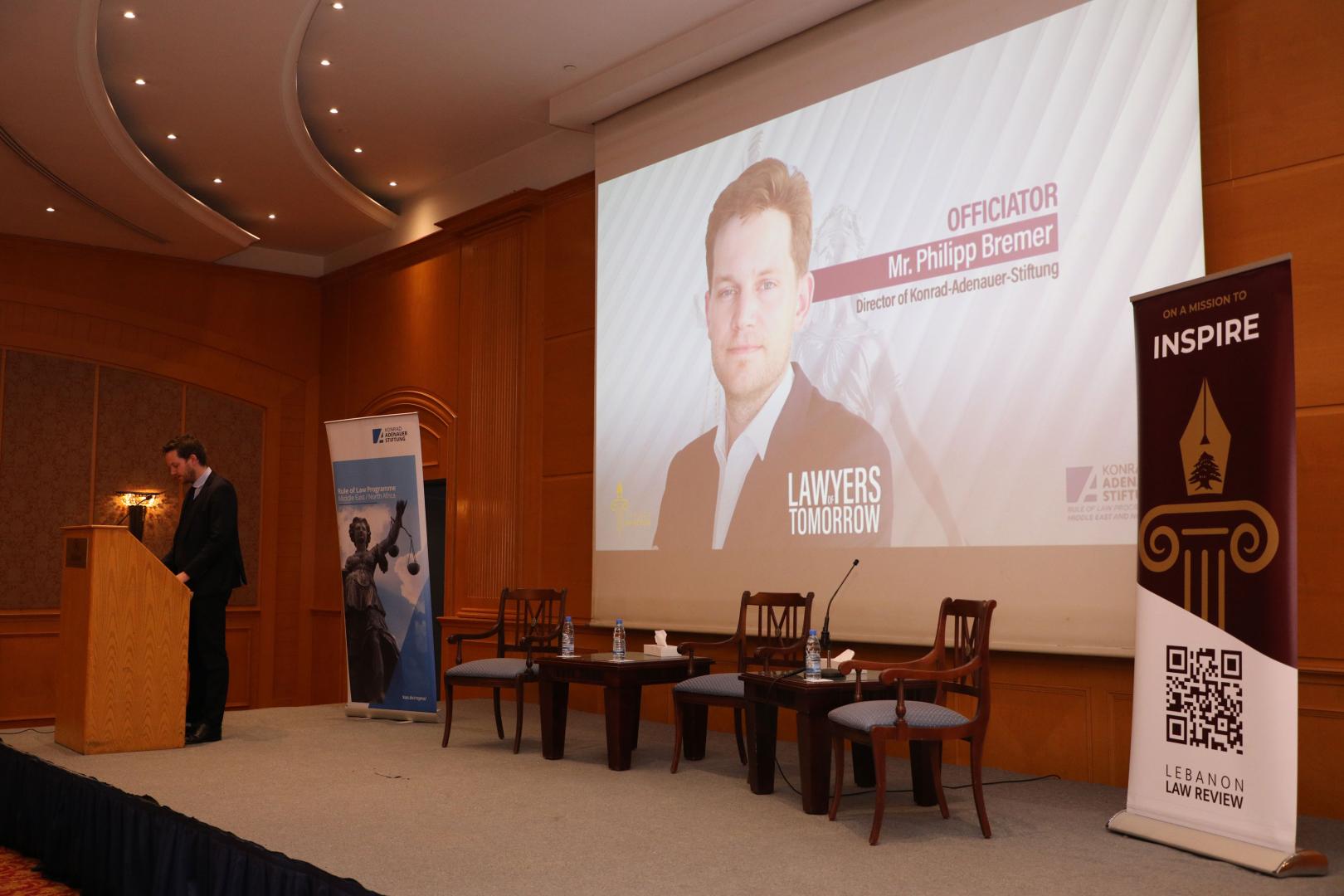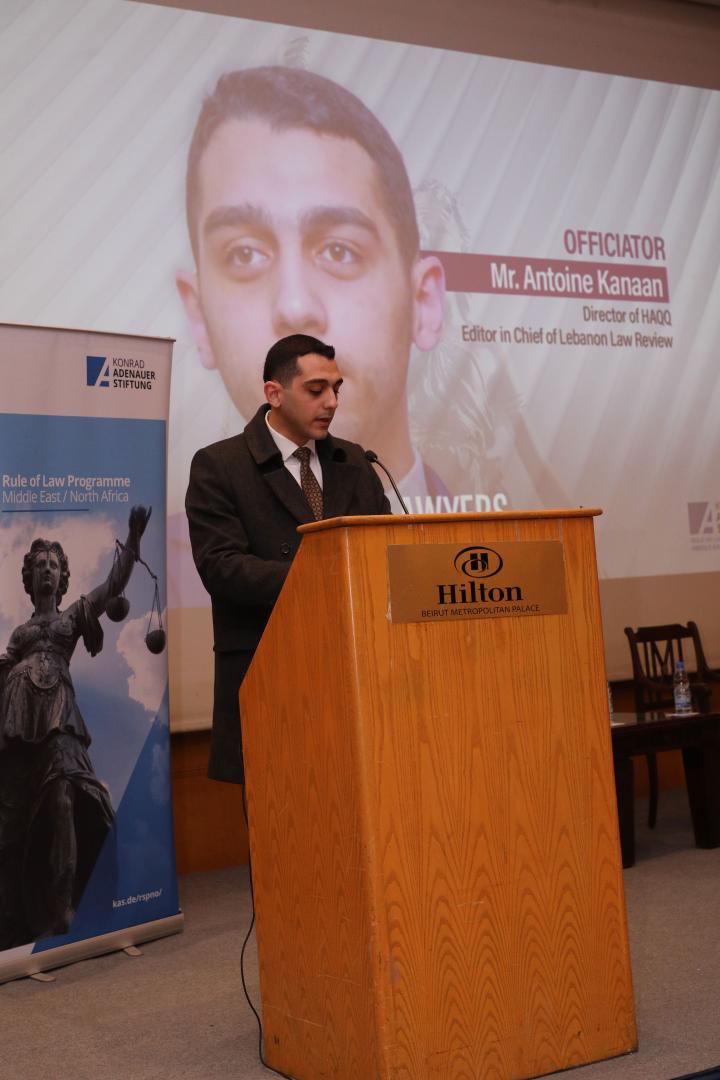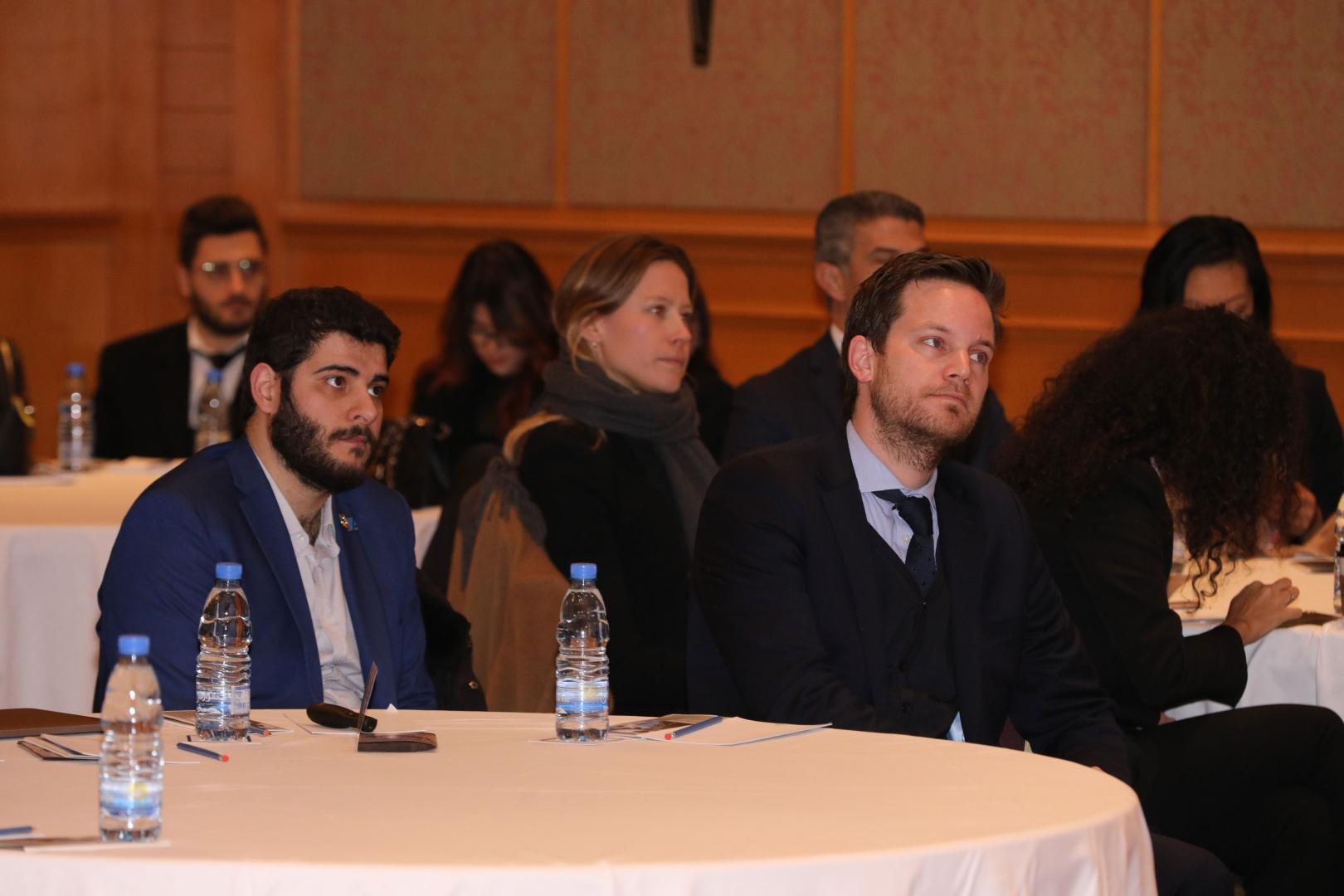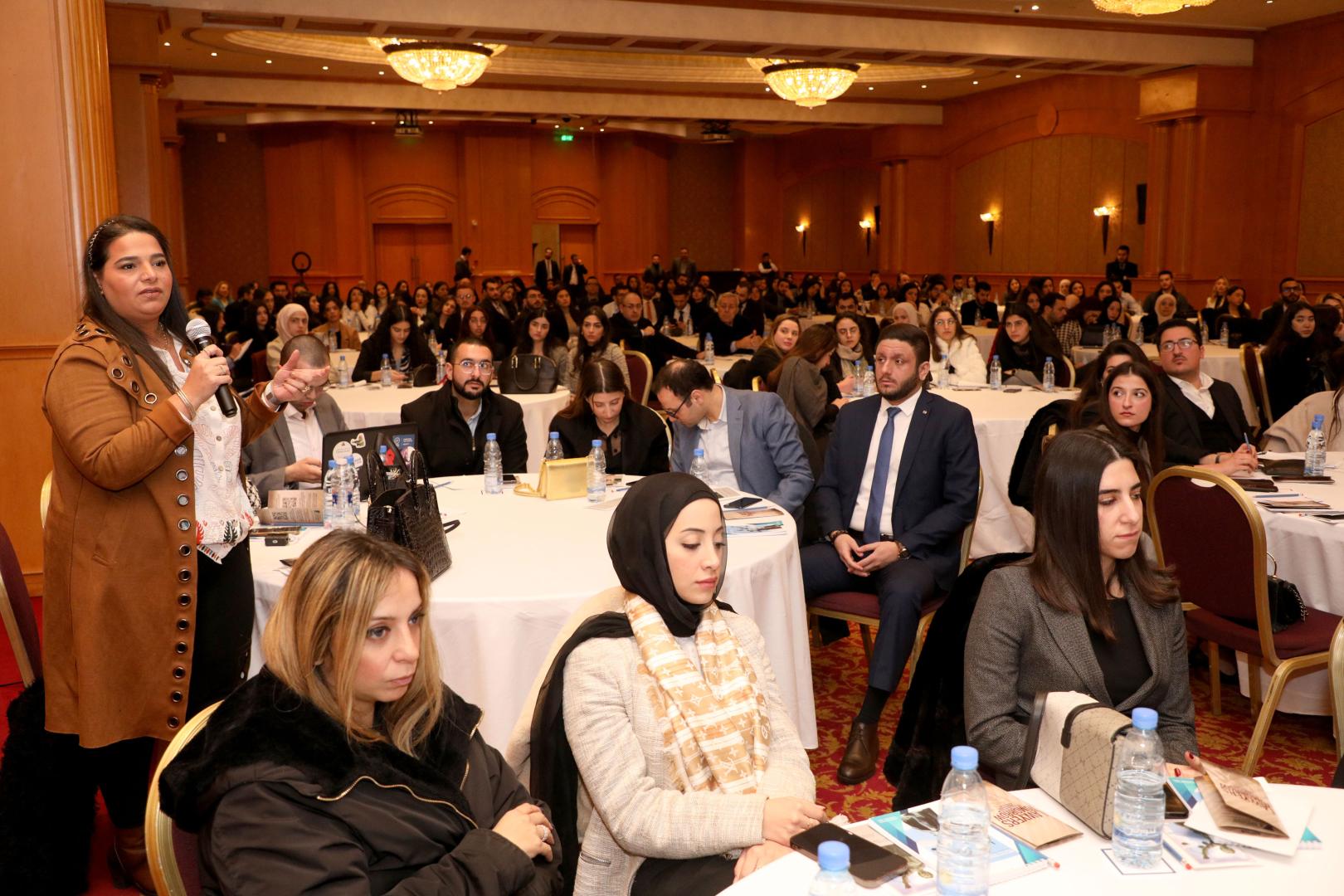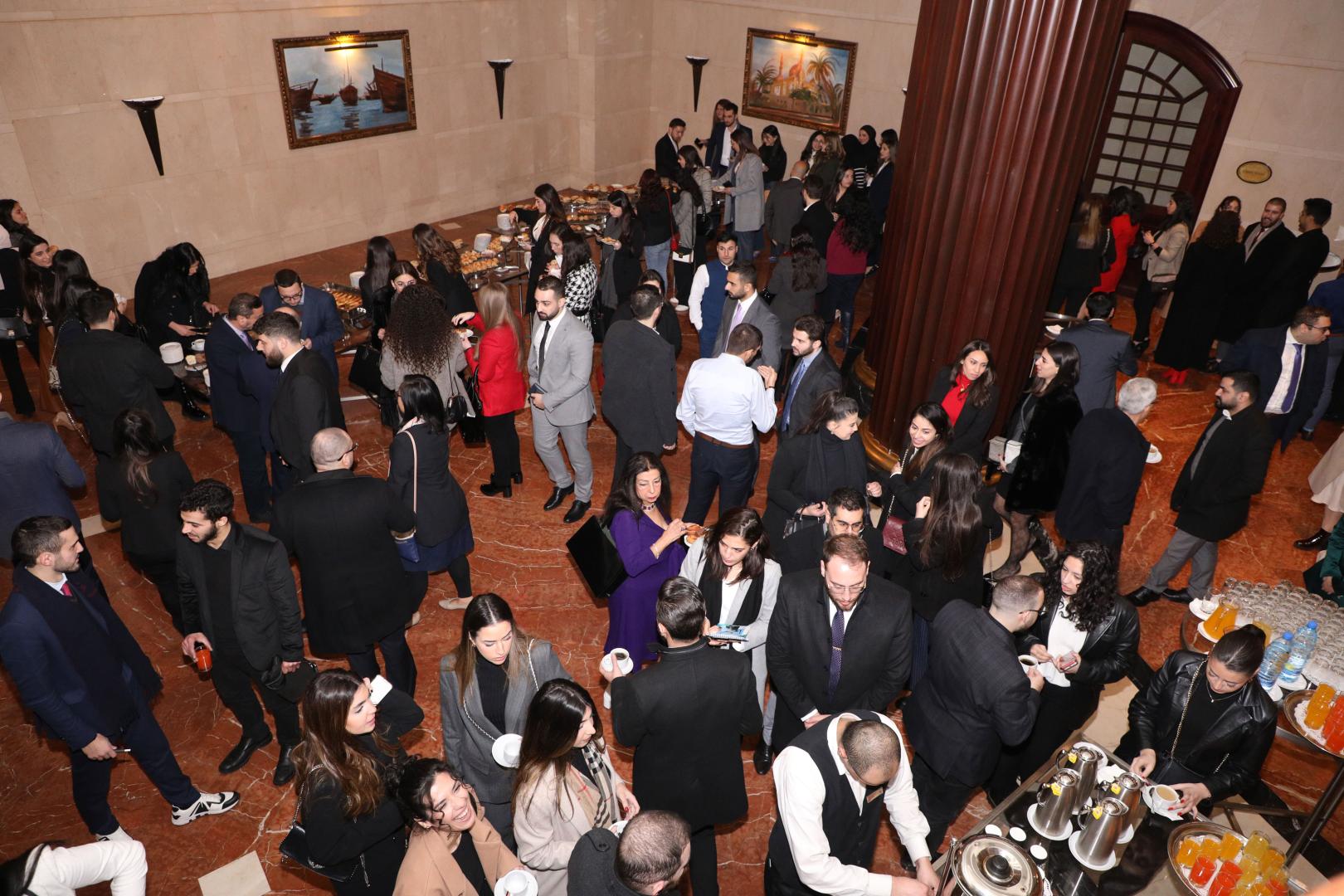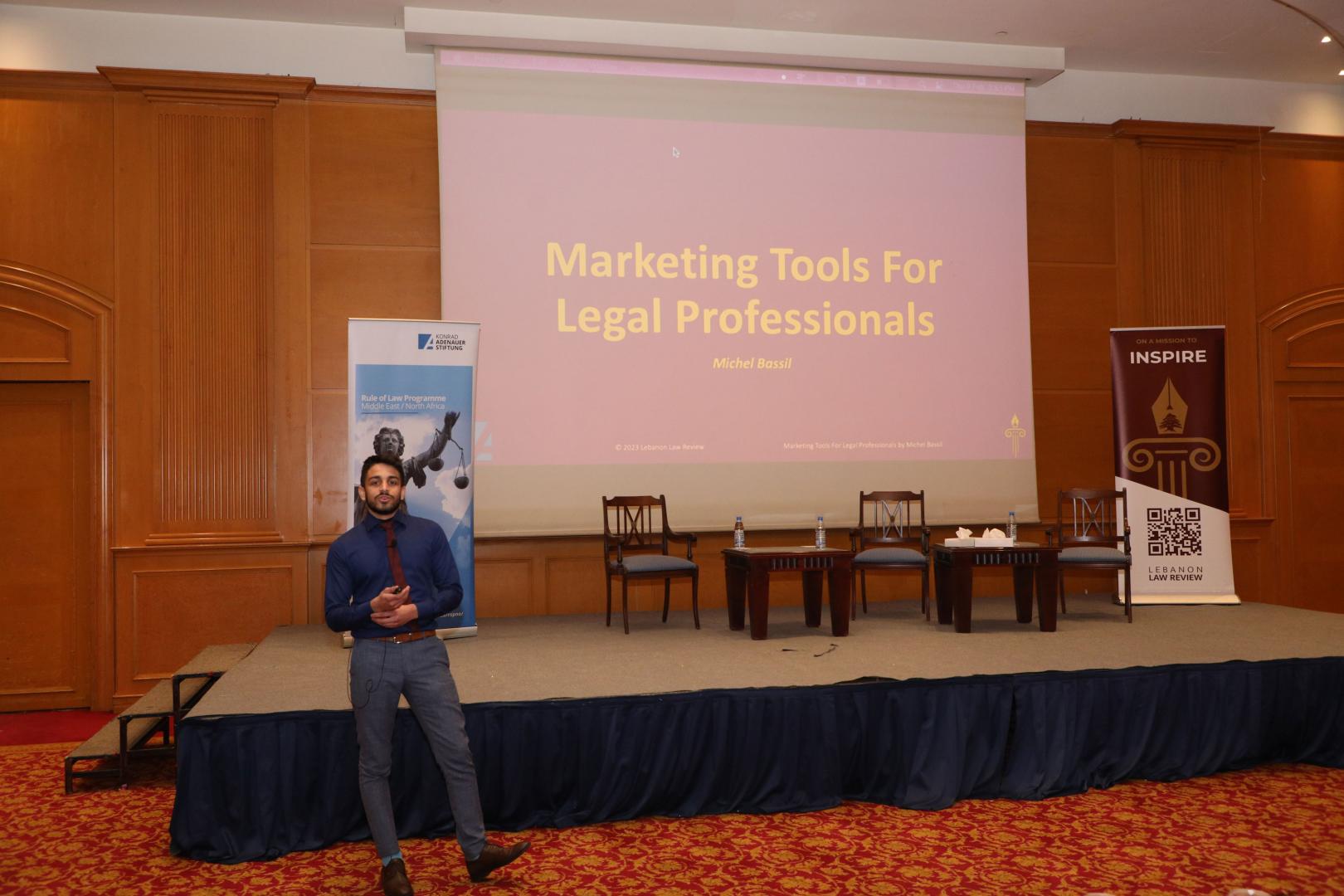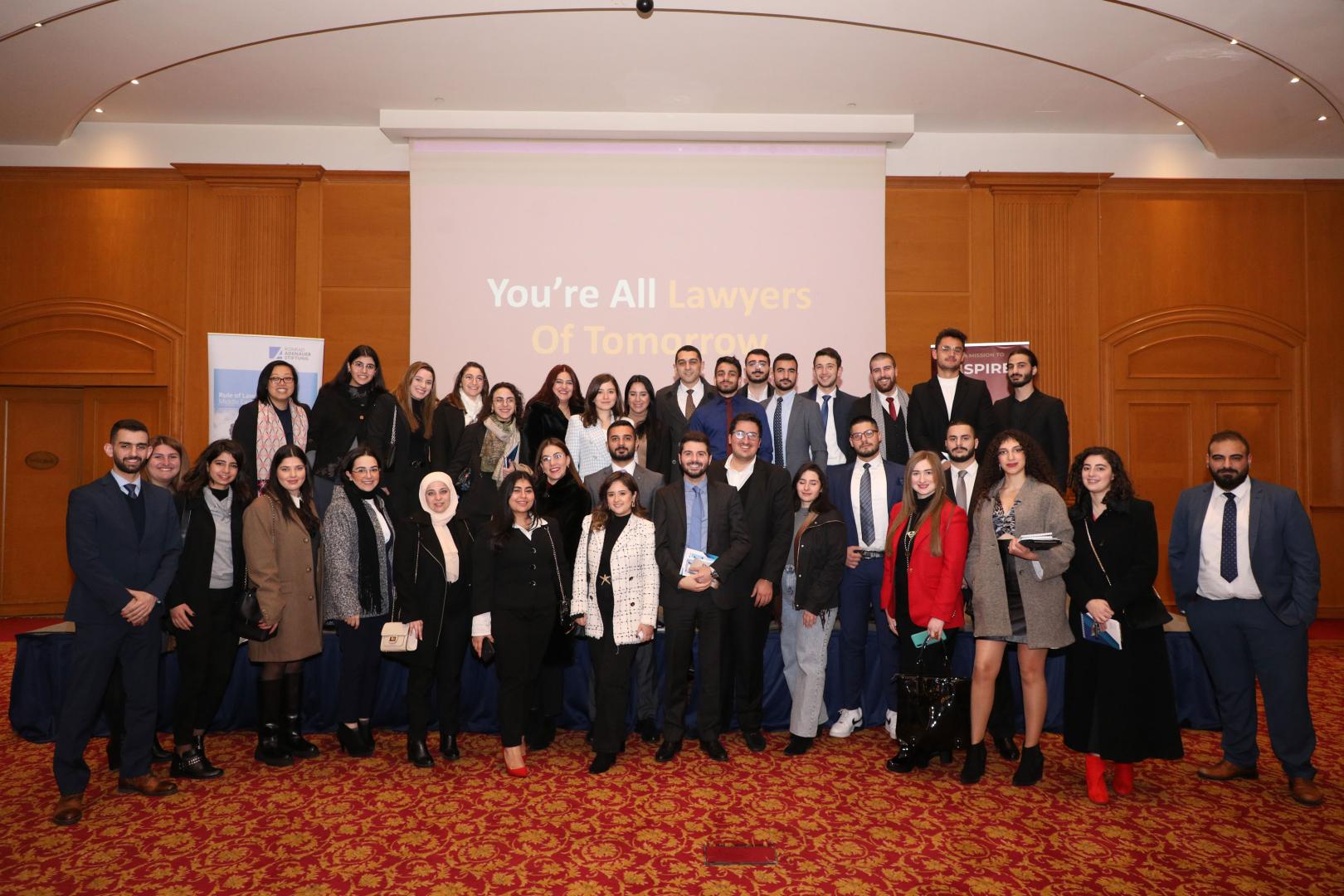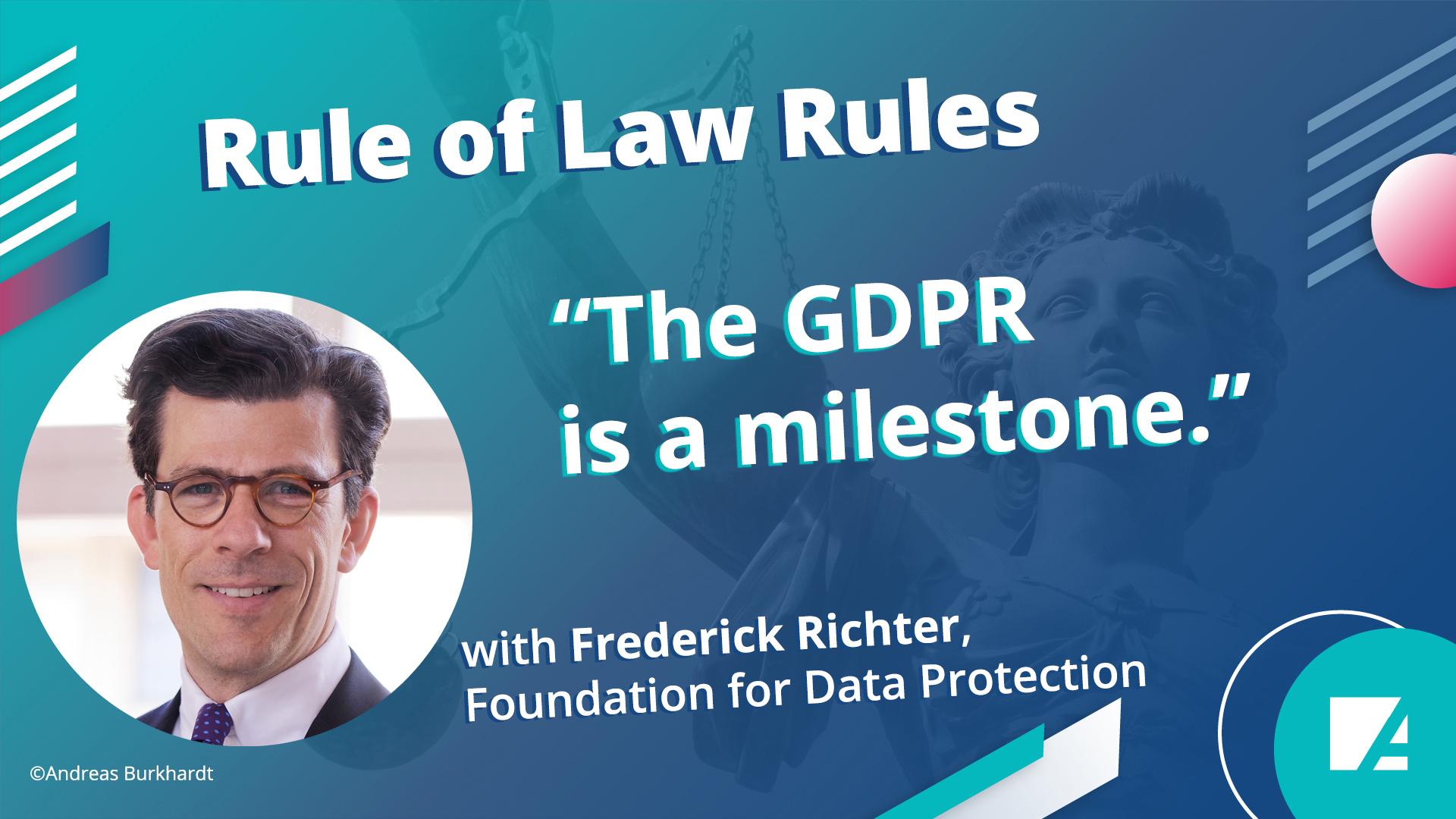At 9:30 AM, the conference started with a welcoming speech from the head of the Rule of Law Programme Middle East and North Africa at the Konrad-Adenauer-Stiftung Mr. Philipp Bremer. He addressed the audience by underlining “the importance of the work and responsibility” of a lawyer. Additionally, he highlighted the importance to keep an eye on the rule of law by stating: “You are all young lawyers. You may not entirely believe it, but you decide. As part of society, you actually decide. And every day as lawyers you can decide to uphold the rule of law – or not”.
Then, Mr. Antoine Kanaan, the Editor in Chief of the Lebanon Law Review and the Director of HAQQ took the stage. He described the desperate situation in which the Lebanese youth are facing especially the legal community. Faced to such an impasse, one should stand, one must stand. In his speech he said: “Tomorrow is full of the unknown – that’s scary, but that’s also promising. Act with integrity, wisdom and vigilance as to what may come about. Be prepared, keep both eyes open, and make the most of your opportunities”.
The conference afterwards was divided into 2 panels and 2 workshops. Project Manager at KAS Mr. Paul Saadeh introduced the panellists and the moderators - which were as following:
***
The first Panel: Future Proof Lawyers: Advertisements and the BBA.
Panellists: Me. Marwan Jabre - BBA Councilmember and Partner at Nouhad Jabre Law Firm, Att. Ahmed Elnaggar - Managing Partner of Elnaggar and Partners and Founder of both UAE Legal Network and UAE Jurist.
Moderated by: Mr. George Sebaali - Research Director of Lebanon Law Review.
Advertising of lawyers as discussed must be in compliance with the provisions of the law and ethical standards of the legal profession. The Beirut Bar association (BBA) sets ethical and professional standards for its members, and is responsible for regulating the advertising of legal services by its members. The Beirut Bar Association may also have specific requirements regarding the format and content of advertising, such as size and placement restrictions and limitations on using certain platforms. Guidelines should be enforced at the BBA to clarify to the lawyer, what is allowed to use from the social media platforms and the internet to promote his work and advertise his service. However, in the United Arab Emirates, the regulations for advertising by lawyers are governed by the Rules of Professional Conduct of the Dubai Legal Affairs Department and the Abu Dhabi Judicial Department. These rules regulate the behaviour of lawyers and set standards for advertising their services. The UAE government has shown a certain level of flexibility in its regulation of lawyers' advertisements, allowing lawyers to promote their services through various media, including websites, social media, newspapers and other printed materials.
Further on this topic, both panellists agreed that advertising is not the solution. Since a lot of times it creates a non-equal competition among lawyers. Highlighting the importance of the presence of a lawyer inside and outside the court, as per his/her outfit. Mentioning that a trustworthy relation is at the core of a lawyers’ profession.
***
The second panel: Free speech versus Hate speech in the digital age.
Panellists: Pres. Najat Abou Chacra - Investigative Judge at the Military Court, Att. Helen Tung - Barrister and Legal Consultant.
Moderated by: Mr. Paul Touma - Media Director of Lebanon Law Review and Co-founder of DewLabs.
It was very important to state that the Lebanese Constitution does not explicitly mention the crime of hate speech. However, it does include provisions that guarantee freedom of expression and the protection of human dignity. The National Strategy of Lebanon, which was developed to address various social and economic challenges facing the country, does mention hate speech as a form of discrimination that should be addressed. It is up to the legislative branch of government to enact laws that address hate speech and other forms of discrimination. Further, it is up to the judicial branch to interpret and enforce these laws. From a different perspective, owners of digital platforms play a crucial role in regulating hate speech and preserving free speech. Digital platforms are private entities and are not bound by the same restrictions that governments are, which means they have more flexibility in regulating speech on their platforms. The owners of these platforms have the power to create and enforce community guidelines and policies that dictate what kind of speech is allowed and what is not. When we open an account on these platforms, it means that we agree willingly and automatically on their respective rules and regulations. The decisions made by digital platform owners regarding hate speech and free speech regulation can have significant impacts on society. For example, a platform's decision to remove or restrict certain content can affect the ability of individuals to express their opinions and ideas and it can also impact the ability of marginalized communities to raise their voices and be heard. In the digital age, the dissemination of hate speech has become easier and more widespread. Thus, it is crucial for governments and social media platforms to take steps to regulate such speech. The challenge is to balance the right to freedom of expression with the right to be protected from hate speech.
***
The first workshop: Legal Research: Digital Tools and methodologies.
Given by: Me. Issam Amro - Legal director of Lebanon law review.
This workshop aimed to provide legal professionals with a comprehensive understanding of the latest digital tools and methodologies used in legal research. The legal director of the Lebanon Law Review conducted the workshop and shared his expertise and experience in using technology to streamline legal research processes. AI can help lawyers and legal researchers by providing them with faster and more accurate results when searching through large amounts of legal data. AI algorithms can analyze vast amounts of legal information and quickly identify relevant case law, statutes and regulations. This can save legal researchers a significant amount of time and effort, allowing them to focus on more high-level tasks, such as analyzing the information they have found and synthesizing it into a useful argument. Any research methodology should contain a legal issue, arguments and a conclusion.
***
The second workshop: Marketing Tools for Legal Professionals.
Given by: Mr. Michel Bassil - Content Executive at Leo Burnett and Marketing director of Lebanon Law Review.
This workshop aimed to show that marketing is a critical tool for lawyers and law firms looking to stand out and build their reputation in today's competitive legal industry by the right tools and techniques. How can you effectively reach your target audience, build your brand and generate new business are topics that were tackled.
Lawyers can use marketing to promote their services and work. For example, they can use LinkedIn. The latter is a professional networking site that allows legal professionals to connect with other professionals in their field. They can use LinkedIn to showcase their skills, experiences and achievements to potential employers/clients. Another example was given, legal professionals can create educational videos on Tik-Tok that provide information on various legal topics and help to establish themselves as thought leaders in their field. In conclusion, advertising for lawyers has been banned due to ethical considerations, but marketing is still acceptable within certain guidelines. As a result, it is important for lawyers and law firms to utilize marketing strategies in a responsible and professional manner.
***
At the end, e-certificate of attendance were sent to all participants following the event.
For those who missed the day, you can find the workshop material alongside the event photos by clicking HERE.



